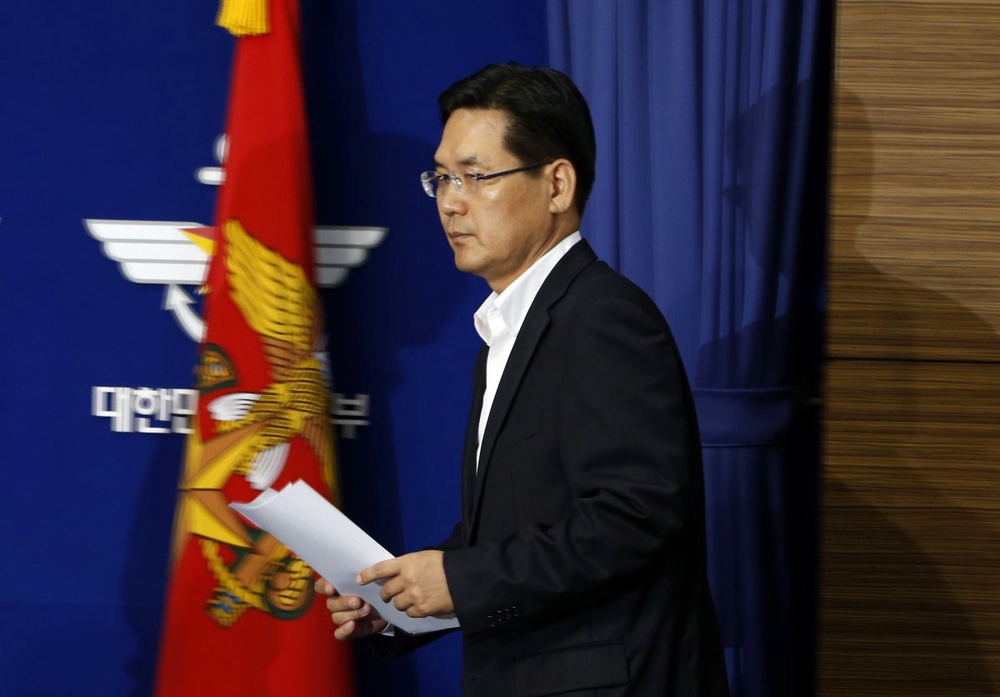
South Korea on Thursday rejected North Korean warnings to call off scheduled joint military exercises with the United States and vowed "severe" retaliation to any provocation from Pyongyang, AFP reports. North Korea had urged Seoul to cancel the annual large-scale drills, known as Key Resolve and Foal Eagle, warning of "calamities and disaster" if they went ahead as planned starting late February. The Committee for the Peaceful Reunification of Korea, a North Korean state body in charge of inter-Korean affairs, said Wednesday that staging the exercises would drive the Korean peninsula "into catastrophe". The joint South Korea-US drills are conducted every year and are routinely condemned by the North as rehearsals for invasion. Reacting to the latest warning from Pyongyang, South Korea's Defence Ministry insisted the exercises would go ahead as scheduled. "If North Korea commits military provocations by taking advantage of these routine exercises ... the military will retaliate severely and firmly," spokesman Kim Min-Seok told reporters. Kim also said North Korea would be better off taking "positive steps" towards addressing global concerns over its nuclear weapons programme than lecturing the South on its military drills. Last year's joint exercises were held in the wake of North Korea's third and largest nuclear test, and prompted months of escalated military tensions that saw Pyongyang issue apocalyptic threats of nuclear strikes against the South and the United States. North-South Korean ties are currently in a state of watchful limbo, with both sides voicing willingness to improve relations while accusing the other of lacking sincerity. Earlier this month, South Korean President Park Geun-Hye called for the resumption of reunions for families separated by the Korean War. But the North rejected the proposal, citing the planned South-US exercises as a major barrier. There has been concern over the stability of the regime in Pyongyang after the execution of Jang Song-Thaek, a senior leader who was also the uncle and former political mentor of North Korean leader Kim Jong-Un. Seoul and Washington have warned of possible provocation by the nuclear-armed North as it seeks to cement national unity following the purge. The South's defence spokesman said "nothing out of the ordinary" had been detected in terms of military movement in the North, but added that Seoul was keeping "close tabs" on the situation. The United States has based troops in the South since the 1950-53 Korean War and the force currently numbers 28,500.





South Korea on Thursday rejected North Korean warnings to call off scheduled joint military exercises with the United States and vowed "severe" retaliation to any provocation from Pyongyang, AFP reports.
North Korea had urged Seoul to cancel the annual large-scale drills, known as Key Resolve and Foal Eagle, warning of "calamities and disaster" if they went ahead as planned starting late February.
The Committee for the Peaceful Reunification of Korea, a North Korean state body in charge of inter-Korean affairs, said Wednesday that staging the exercises would drive the Korean peninsula "into catastrophe".
The joint South Korea-US drills are conducted every year and are routinely condemned by the North as rehearsals for invasion.
Reacting to the latest warning from Pyongyang, South Korea's Defence Ministry insisted the exercises would go ahead as scheduled.
"If North Korea commits military provocations by taking advantage of these routine exercises ... the military will retaliate severely and firmly," spokesman Kim Min-Seok told reporters.
Kim also said North Korea would be better off taking "positive steps" towards addressing global concerns over its nuclear weapons programme than lecturing the South on its military drills.
Last year's joint exercises were held in the wake of North Korea's third and largest nuclear test, and prompted months of escalated military tensions that saw Pyongyang issue apocalyptic threats of nuclear strikes against the South and the United States.
North-South Korean ties are currently in a state of watchful limbo, with both sides voicing willingness to improve relations while accusing the other of lacking sincerity.
Earlier this month, South Korean President Park Geun-Hye called for the resumption of reunions for families separated by the Korean War.
But the North rejected the proposal, citing the planned South-US exercises as a major barrier.
There has been concern over the stability of the regime in Pyongyang after the execution of Jang Song-Thaek, a senior leader who was also the uncle and former political mentor of North Korean leader Kim Jong-Un.
Seoul and Washington have warned of possible provocation by the nuclear-armed North as it seeks to cement national unity following the purge.
The South's defence spokesman said "nothing out of the ordinary" had been detected in terms of military movement in the North, but added that Seoul was keeping "close tabs" on the situation.
The United States has based troops in the South since the 1950-53 Korean War and the force currently numbers 28,500.

 +7 (777) 001 44 99
+7 (777) 001 44 99



 Қазақша
Қазақша Русский
Русский English
English














































